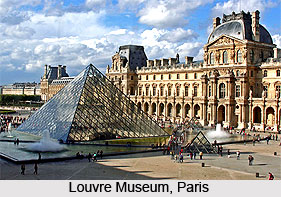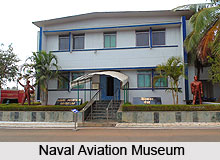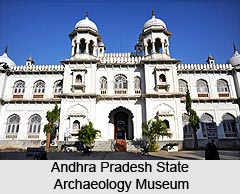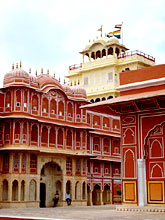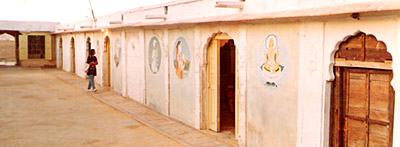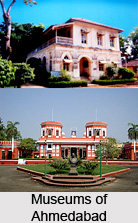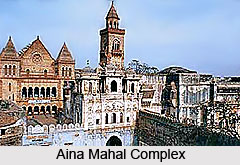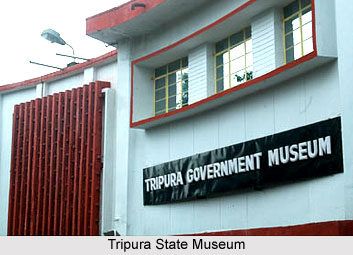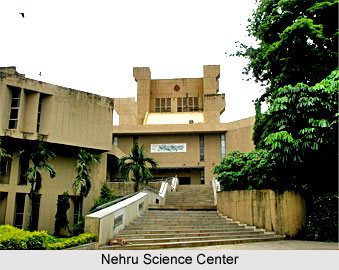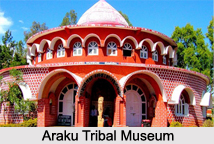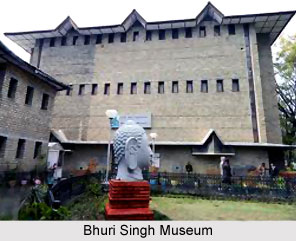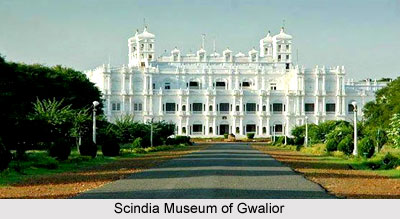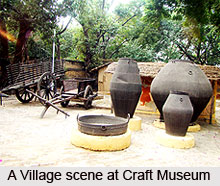 The Crafts Museum, located at Pragati Maidan , on Bhairon Road, in New Delhi, enthuses the fervor for deft craftsmanship, among the Indian craftsmen. The spree for appreciating the wide diversity of Indian crafts also gets its high, through the intriguing display and the direct communication with the excellent craftsmen of Crafts Museum, Delhi.
The Crafts Museum, located at Pragati Maidan , on Bhairon Road, in New Delhi, enthuses the fervor for deft craftsmanship, among the Indian craftsmen. The spree for appreciating the wide diversity of Indian crafts also gets its high, through the intriguing display and the direct communication with the excellent craftsmen of Crafts Museum, Delhi.
However, the Crafts Museum, owes its existence to the Western Influence. The Craft Museum, inaugurated in 1956, was the first of its kind, to accommodate broken sculptures, rusted antiquarian swords, and out-of-date paintings into its antique collection.
The revolution brought about by the sweep of industrialization, relegated the concepts, designs, techniques, material and aesthetic flavor, related to Indian crafts, to the background. In fact these rare items, has revived the declining contacts of the craft-artisans with the rich heritage of Indian traditional crafts.
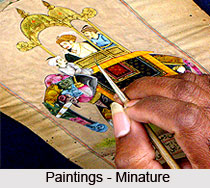 By the initial phase of the 1980s, the Crafts Museum, exhibited a praiseworthy collection of 20, 000 artifacts, a massive number indeed. These range from folk and tribal arts, to crafts and textiles is a curiously shaped museum-construct. It was indeed a difficult job for the renowned Charles Correa, the architect, of this building. He was asked to erect an awesome A-class building, sound enough to house such an enormous repertory, and at the same time the structure should not be that conspicuous so as to dim prominence of the simpler but valuable architectural models of rural countryside, displayed there. The marvelous and appropriate Museum-building is in tune with the ancient and historical neighbor, the Purana Qila on the one side and the ethnic Village Complex of the Museum on the other side. Mud-built huts composed of resplendently painted walls and thatched roofs, courtyards, terracotta horses , reminiscent of village shrines, and finally craftsmen at work , amidst such rural environs, give a live demonstration of Indian rustic life .
The first gallery is the Tribal and Rural Craft Gallery, is a building of little-elevation, invested with old carved wooden doors, and windows, from Gujarat and Rajasthan, along with champa trees, tulsi-shrines, and a monumental temple-car, existing in the central courtyards. It is wonderful to note the marvelous past traditions, beautifying modern buildings- a fascination fusion of classical tradition with innovative modernity.
By the initial phase of the 1980s, the Crafts Museum, exhibited a praiseworthy collection of 20, 000 artifacts, a massive number indeed. These range from folk and tribal arts, to crafts and textiles is a curiously shaped museum-construct. It was indeed a difficult job for the renowned Charles Correa, the architect, of this building. He was asked to erect an awesome A-class building, sound enough to house such an enormous repertory, and at the same time the structure should not be that conspicuous so as to dim prominence of the simpler but valuable architectural models of rural countryside, displayed there. The marvelous and appropriate Museum-building is in tune with the ancient and historical neighbor, the Purana Qila on the one side and the ethnic Village Complex of the Museum on the other side. Mud-built huts composed of resplendently painted walls and thatched roofs, courtyards, terracotta horses , reminiscent of village shrines, and finally craftsmen at work , amidst such rural environs, give a live demonstration of Indian rustic life .
The first gallery is the Tribal and Rural Craft Gallery, is a building of little-elevation, invested with old carved wooden doors, and windows, from Gujarat and Rajasthan, along with champa trees, tulsi-shrines, and a monumental temple-car, existing in the central courtyards. It is wonderful to note the marvelous past traditions, beautifying modern buildings- a fascination fusion of classical tradition with innovative modernity.
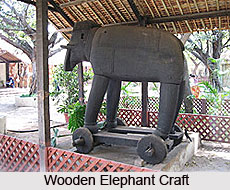 The magnificent repository of the Crafts Museum, Delhi, created over a considerable time of three decades, incorporates bronze images; lamps and incense burners; ritual ornaments; implements and appliances of daily use ; impressive wood and stone sculptures ; papier mache; ivories, dolls, toys, puppets and masks; jewellery; embellished metalware including bidri patterns ; paintings; terracotta; cane and bamboo work and a plethora of textiles, accumulated from several areas of India.
The magnificent repository of the Crafts Museum, Delhi, created over a considerable time of three decades, incorporates bronze images; lamps and incense burners; ritual ornaments; implements and appliances of daily use ; impressive wood and stone sculptures ; papier mache; ivories, dolls, toys, puppets and masks; jewellery; embellished metalware including bidri patterns ; paintings; terracotta; cane and bamboo work and a plethora of textiles, accumulated from several areas of India.
Galleries of folk and tribal arts and crafts, artifacts of refined taste, ethnically rich commodities, and traditional Indian fabrics, available in the Gallery of Tribal Crafts, Textile Gallery and Gallery of Popular Culture.
Added to these, there is installed a `Visual Store` for perfect reference. It consists of approximately, 15,000 things, which can enlighten erudite scholars, designers, craftsmen and the ardent public for intensive as well as extensive study and research. The short but illuminating captions furnish the right data, regarding an item, and the details are well procurable through a consultation with the Museum`s very informative catalogue.
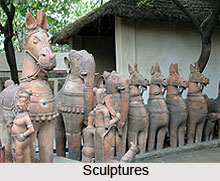 The Crafts Museum, Delhi, is unique from the perspective that it not only sustains the ages-old traditions of crafts of India, but also by boosting up the inventive power of craftsmen, who can dexterously mix the old forms with the new notions, to arrive at a meaningful and groundbreaking achievement.
The Crafts Museum, Delhi, is unique from the perspective that it not only sustains the ages-old traditions of crafts of India, but also by boosting up the inventive power of craftsmen, who can dexterously mix the old forms with the new notions, to arrive at a meaningful and groundbreaking achievement.
The Crafts Museum Shop, situated within the Museum grounds, sells books, picture-postcards and an immense variety of exotic recent handicrafts. The aim of setting up this shop is to sell and popularize authentic productions of the outstanding Indian craft-artisans.
The Crafts Museum, New Delhi, which remains closed on Mondays, is open on other days of the week, from 1a.m. to 5.30p.m.
The Crafts Museum, New Delhi, is definitely an attention-arresting enterprise, consolidating the necessity for the celebration of indigenous crafts in India.
